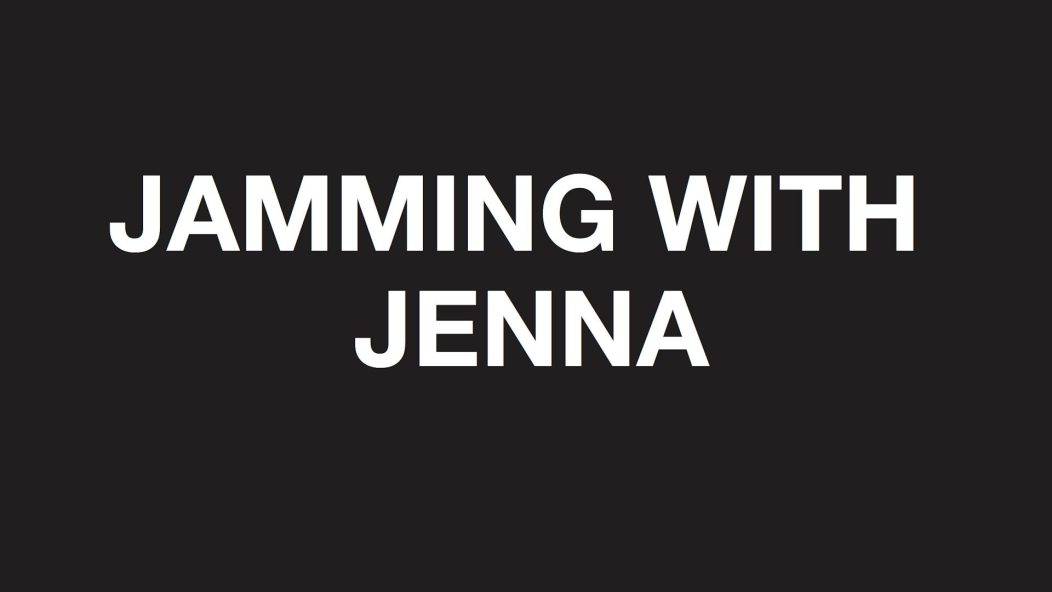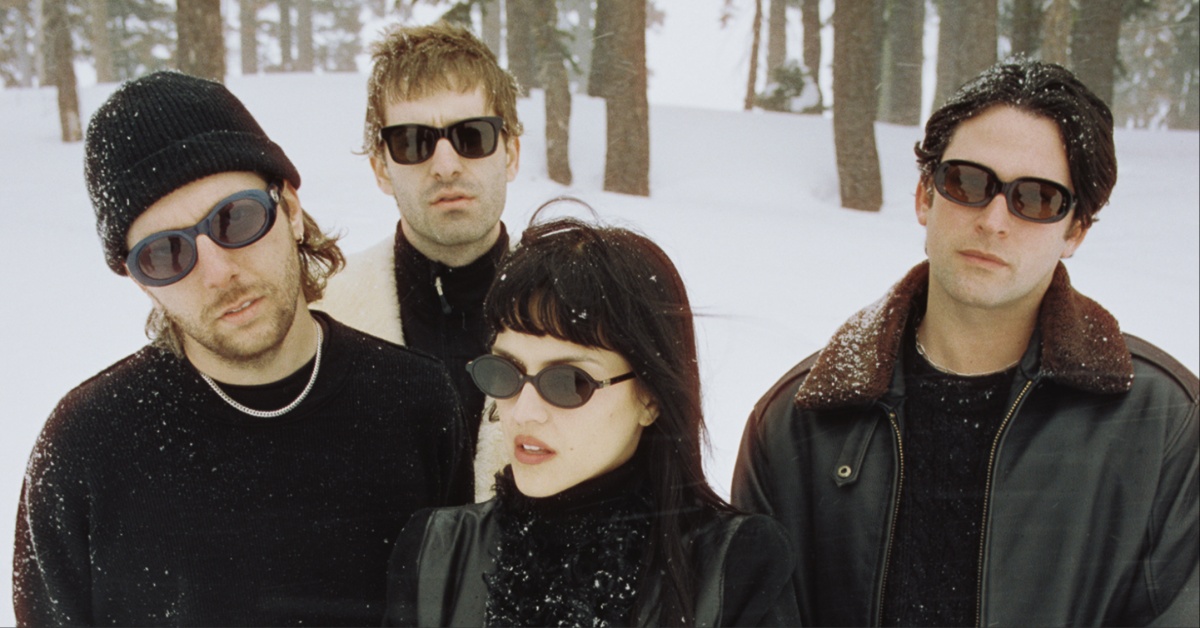
Jamming with Jenna, Round #3: Bring Me The Horizon, Don't Let Me Drown

…
In this column, IO Staff Writer Jenna DePasquale connects heavy metal with the world at large.
…
When reflecting on an era that thrived just one decade ago, it is clear that while life was no better, it was certainly simpler. I had Obama as my president, a coveted unlimited texting plan, and no peripheral vision in my right eye. None of us did. The beauty of the side-bang was that it blocked out a solid half of the shithead classmates we were forced to endure for 12 years. It also made it easy to pretend like I didn’t see a school administrator motioning to remove my beanie. For a seemingly ridiculous hair style, it held important practical and symbolic purposes; namely, pulling the blinds down on high school while also providing one eye open with a gaze toward better days. When used correctly, this hallmark feature of being a scene kid held untapped potential. While many of us who came to age in 2008 have moved on to undercuts and lobs, chances are, there’s still a bullet wound worn like a purple heart — a snakebite hole, a blown-out ear lobe — to indicate that we didn’t go down with the ship.
Sadly, many cultural landmarks of growing up scene have since been phased out. Everything from getting second-degree sunburns at Warped Tour to sitting in large groups of friends on the floors of movie theater lobbies have become completely extinct. However, a few fossils have not only stood the test of time but have taken on a new luster with each passing year. One in particular started out like an urban legend lurking around lunch tables and message boards: an album called Suicide Season.
In a curious case of foreshadowing, a cult was born.
On November 18th in the pivotal eighth year of the new century, Bring Me the Horizon’s gutsy full-length put the British metalcore act on the radars of those trapped in the vapidity of vacant fields and strip malls. Channeling the fun alongside the serious like an unholy Shakespearean epic, the all-killer record proved to be the perfect soundtrack for releasing the pent-up rage of the tier-headed youth.
While metalcore bands were popping up in 2008 like progressive artists in 2011 and doom trios in 2015, Suicide Season demonstrated why Bring Me the Horizon was in an elite class. More short-sighted artists tended to fall into the trap of one-and-done singles (maybe two if they were lucky). While logic dictates that a band will come up with one banger out of everything that is produced, weaving a cohesive album together became a massive hurdle for some then-metalcore artists. As a result, burning a band’s name into the collective memory of the scene via the neon lettering of a Hot Topic t-shirt produced more longevity than the music itself.
Without a doubt, Suicide Season hit single “Chelsea Smile” fucked skulls from sea to shining sea. I have fond memories of blasting it in the passenger’s seat of my older sister’s Oldsmobile as she grumbled – partly because she got roped into taking me to the doctor for my alleged swine flu/excused absence, but mostly because she wasn’t quite done living her moment with nü-metal. I growled along like a cat in trash can: “we all carry these things inside that nothing else can see / they hold us down like anchors / they drown us out at sea.” To be fair, what was coming out of the car speakers wasn’t exactly high fidelity either. The track had been placed on a cassette recorder held up to a computer playing its raucous visuals on a nubile-looking YouTube. Scene kids, too, lived a struggle that our generation is not often credited with knowing.
…
…
That said, Suicide Season is not a sum of any single. Telling the highs and lows of gains, loss, partying, and the next morning’s sense of dread, this record tells a story that resonates with those gaining their sea legs in the world of young adulthood. This dichotomy can be found in the wide-ranging color of lyrics. “Football Season is Over” screams “party ’til you pass out / drink til you’re dead / dance all night ’til you can’t feel your legs” at the top of its lungs, but not without a warning from “The Sadness Will Never End,” stating “you can’t stand on two fucking feet with a substance as a crutch.”
Variations in tone can also be found in the songwriting itself. Drumming patterns in “Sleep With One Eye Open” show-off a post-hardcore influence while ultimately uniting back at the band’s roots in death metal. The origins of tracks “Fuck” and “Don’t Go,” featured on Bring Me the Horizon’s follow-up There is a Hell…, can also be heard in the melancholically atmospheric introduction of “The Sadness Will Never End.” Also foreshadowing the quintet’s knack for seamless evolution is their early potential for writing epics. The lengthy title track serves as a riveting mourning cry like one still popping up on Facebook in the event a jarring death of a former high school classmate: “if sorrow could build a staircase and tears could show the way / we would climb our way to heaven and bring him back home again.”
With a new decade, there came new beginnings, but the scene still dwelled on old traditions. While the popularity of metalcore was starting to see some competition with dubstep and djent, Bring Me the Horizon continued to provide the heart of the subgenre with a slightly softer edge. The year 2010’s There Is a Hell, Believe Me I’ve Seen It. There Is a Heaven, Let’s Keep It a Secret. picks up where Suicide Season left off in terms of grandiosity. Opener “Crucify Me” is a forceful current easy to get lost in, with the build leading into the smack of one of my personal favorite lyrics: “I am the ocean / I am the sea / there is a world inside of me.” The fast-paced guitar riffs and choir-like breaks (performed by Canadian singer Lights) proved to be the perfect soundtrack for night drives on ass-cold nights around cul-de-sac hell.
While my attention to Bring Me the Horizon had briefly waned at the end of my high school career, my buddy Zach turned me on to the often underrated album as he alternated “Crucify Me” and Kevin Gates’ “Two Phones” from behind the wheel. I was in college now, but not nearly as cool as I thought I’d be at this point. I was commuting from my parents’ house to stay closer to a boyfriend with whom I had already broken up. The resentment that stemmed from the death of a part of me I never knew I had took form in “It Never Ends”: “every second / every minute / every hour / every day / it never ends.”
I couldn’t put my finger on what “it” was, yet I knew exactly what vocalist Oli Sykes meant. Hell, I still do.
…
…
Understanding Bring Me the Horizon’s next chapter involves returning to their beginning. The year 2006’s Count Your Blessings still stands as the band’s most abrasive feat to date, serving up unadulterated deathcore, as well as a cover of Slipknot’s “Eyeless” for good measure. If you compare mosh slapper “Pray for Plagues” to party crasher “Chelsea Smile,” you can already see a shapeshifting process underway in a span of just two years. Riffs go from full to bright and vocals increasingly welcome more inflection. In a sense, revolutionary growth has been written into the story of Bring Me the Horizon from the get-go; more broadly, being a scene kid meant having a loyalty to post-hardcore, but I can speak for both myself and my friends when I say that we were true omnivores of heavy music, filling our iPods with everything from Cradle of Filth and Rammstein to The Exploited and The Misfits.
Bands who pigeonholed themselves so tightly into the corner of the Skullcandy Stage were left behind in that era. Similarly, fans who limited themselves to this ilk proved to be living out a phase. It was those who performed and enjoyed a more textured repertoire who prevailed.
Bring Me the Horizon’s 2013 release Sempiternal made headlines because it was the band’s most overt display of stylistic change to date. With a new designated keyboardist (Jordan Fish of Worship) in tow, this album took on a decisively more electronic sound right out of the gate with opening track “Can You Feel My Heart.” Yet, the principle of all-killer-no-filler still stands, and then some. Not only does Sempiternal yield Bring Me the Horizon’s most recognizable singles, tracks like “Antivist” are considered to be among the greats, earning spots on 2017’s best-of compilation 2004-2013.
Laden with delicate piano strokes offset with searing frustration and brutal honesty, it comes with vast, yet, slim surprise that Sykes later described a severe ketamine addiction during this era of his life. “Hospital For Souls” vulnerably describes an institutional stay while “Crooked Young” maintains healthy skepticism about formulaic steps for recovery – dialogue that resonates with many of us whose hometown habits escalated into the walls of dependency. Sempiternal ends on a high but mellow note with the chilling whispers of “Deathbeds.” “Don’t try to fight the storm / you’ll tumble overboard / tides will bring me back to you” describes the slow heartbeat of romance long since lost. Together, the substance of Sempiternal comes together to form a timeless lesson in perseverance that validates complicated emotions in lieu of preaching sermons.
While I had suffered a hiatus with listening to Bring Me the Horizon since my friendship with Zach had drifted away, my fandom came back full-force when I began living on my own. I discovered both Sempiternal and 2015’s That’s The Spirit as the release of the visuals for “Drown” prompted me to play catch-up. While Sykes’ substantial clean singing prompted some pretty polarizing discussion in the comments of Metal Injection, “Drown” quickly earned a spot in my heart for crushing my soul without the help of the easy blow that deathcore provides. Visually-speaking, “Drown” retains some of the more eclectic, cartoonish aspects of scene kid culture that Bring Me the Horizon encapsulated in videos like “The Comedown” (from Suicide Season). The historic thread of nautical themes is also present: “who will fix me now / dive in when I’m down / save me from myself / don’t let me drown” illustrates the anthem.
The ability to grasp onto something familiar with a newfound delicate departure spoke to me as I could feel my own mental afflictions culminating as a weight tethered around my ankle.
I was 21, but feeling close to death as I became adrift in the throes of various eating disorders. As ethereal album-opener “Doomed” aptly describes: “you must have made some kind of mistake / I asked for death but instead I’m awake.” I was also learning the hard way that growing older and moving to a trendy neighborhood often comes with living in a condemnable home worth thousands of dollars in rent provided by a boss who makes you question your sanity. After a long day at the office, I would lay in bed with my ears stuffed with headphones and my stomach markedly empty. With my body temperature going haywire and my apartment’s radiators permanently in disrepair, my only source of warmth was the umbrella glowing from my phone’s Apple library. Miraculously, I always lived to see another day as That’s The Spirit provided shelter from the storm. But I’m not the only one with a resurrection story: as bands across metalcore (and djent and dubstep) have folded (or turned into whatever this is), Bring Me the Horizon continues to rise again.
…
…
As we sit just weeks away from Bring Me the Horizon’s next album amo, our future has never looked so futuristic. Up is down, left is right, and rap is the new punk rock. Well, that’s what Sykes recently claimed, but not necessarily with the tone of disdain, but of simple fact. The “scene” kids of this decade are growing up with Soundcloud, and that’s okay (great, even).
The ability to accept reality is refreshing in a time when metal tends to get hold itself back in tangled argument. Being wise enough to know that the youth of today are seeking a different style for catharsis seems to be the latest secret in Bring Me the Horizon’s longevity. Rather than relive the glory days or try to be something they’re not, the quintet is embracing rock’s potential for mainstream palatability with an intelligent twist. Having grown up alongside the ever-shifting troop, I am confident in saying that I’m grateful to have had Suicide Season at 14 and That’s The Spirit at 21.
They’re albums that serve two distinct purposes with a journey in-between that helped to numb my growing pains. Truly, there’s no use trying to fight the storm of change when the tides will always bring me back to Bring Me the Horizon.
…
Bring Me The Horizon’s latest album amo releases today via RCA Records.
…

…
Become an Invisible Oranges patron.
…











